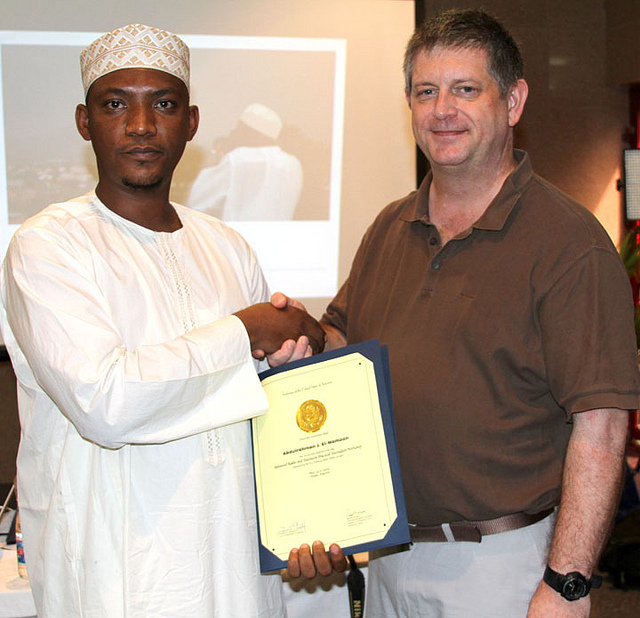The legislative arm is a very important part of a democratic government. It is the arm on whose shoulders rests the very important and heavy task of making laws that would guide the smooth running of affairs in any given nation. Therefore it should consist of very high competent individuals, who possess very high standard of education and moral character. In fact, lawmakers are commonly titled distinguished or hounourable members, because they are supposed to possess outstanding capabilities that should enable them to satisfactorily represent their respective constituencies in the various legislative houses in the country.
The Congress of the United States of America, as well as Harvard University in the United States and Oxford University in the United kingdom have all banned Nigerian lawmakers from foreign exchange training programmes over the lawmakers’ consistent failure to attend and participate in the programmes. Deputy Senate President Ike Ekweremadu, who disclosed this during a recent interactive session with Chairmen of the House Standing Committees and the National Institute for Legislative Studies (NILS) also admitted that his colleagues were fond of absconding from training programmes after being paid for, an attitude he bitterly condemned.
Citing a few instances of such unprofessional behavior by the lawmakers, the Senate leader said there was a time when the prestigious Oxford University in the United Kingdom rejected many Nigerian legislators, who refused to attend a training programme until the last day. And in another instance, it took over six months of appeals and high-level diplomatic talks for the US Senate to accept Nigerian lawmakers for an international exchange programme, because of their attitude of absenting from the programmes after being nominated.
No doubt, this attitude of the lawmakers is indeed condemnable as it seriously exposes not only despicable attitudes of the lawmakers but also their relatively poor quality. It is very unfortunate that the lawmakers, on whom a large portion of the nation’s scarce resources are spent, and who should have endeavoured to exemplify the best characters both at home and abroad, have continued to conduct themselves in a manner that portrays them as unpatriotic and opportunists thereby lowering the prestige of the country on the international scene.
However, many Nigerians would hardly be surprised that the lawmakers have already established such a bad record in those prestigious institutions, because it is the same kind of attitude that they demonstrate at home. Abscondment by many legislators from assembly sessions both at the federal and state levels has almost become a fashion to many of them. It is rather unfortunate that as less hectic as their working days were, which only consist of three days in a week, except in the event of oversight function and during budget deliberations, many of the parliamentarians, find it very difficult to attend plenary or other committee sittings. Even more worrisome is the fact that many out of those who are regular in legislative sessions either lack the capacity to make meaningful contributions to deliberations or are just too indifferent to the business of the legislative houses. It would therefore, not amount to an exaggeration to say that the nation is only wasting a large portion of its scarce resources, to pay people that are more a liability than an asset to the nation.
Certainly, the recent decision of the US Congress and the internationally renowned Oxford and Harvard Universities, by which Nigerian legislators are banned from participating in their exchange programmes should serve as a very loud wake-up call to our legislators. The lawmakers should see the ban as an avoidable consequence of the misconduct of some of them and therefore begin to live up to their responsibilities. It is only rational that the person whose duty is to make laws for others to follow, should be seen to be the first to observe to such laws and exhibit high moral standard and discipline.
Additionally, more fairness should be observed in the selection of those to attend such trainings, so that it is only those who are both qualified and serious enough should be given the opportunity. This means that nomination of members of national and state assemblies to partake in trainings and workshops or any other programme should henceforth be strictly merit-based.
But more importantly, this decision by the US Congress and other institutions in the UK that deprived Nigerian lawmakers from the opportunity to advance their knowledge and experience and improve their capacity on legislators, through foreign exchange programmes, poses a more greater challenge to the ordinary Nigerians, who hold the right to send any person of their choice to represent them at the parliament. Therefore, the electorate should ensure the election of only those candidates that possess the requisite educational and moral qualification to represent them at all levels. Failure to do so would only mean the continuous waste of resources in sponsoring rotten and incompetent legislators who would only influence the formulation of rotten laws that would have no positive impact on the people and the country, but only a source of more disgrace, chaos and underdevelopment.

No comments:
Post a Comment